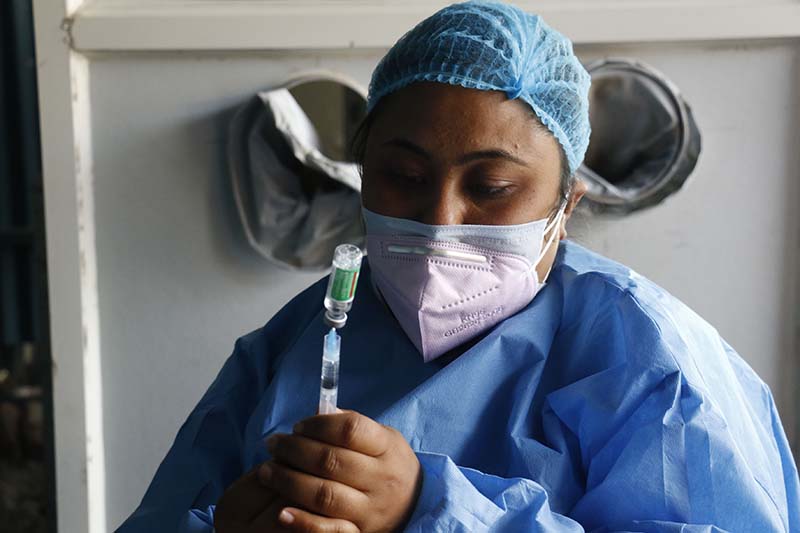

On January 27, the government launched a vaccination campaign after Nepal received one million doses of Covishield vaccine from the Indian government on grant. India had supplied the vaccines on January 21.
The country later received one million doses out of the two million purchased from Serum Institute of India, which manufactures the vaccine. Likewise, on March 7, Nepal received another 348,000 doses of Covishield vaccine through the United Nations’ COVAX facility. China too has provided 800,000 doses of Vero Cell vaccine on grant.
During the launch of the vaccination drive, Prime Minister KP Sharma Oli had declared that all Nepalis would be vaccinated free of cost within three months. It is almost four months now and the government has been able to vaccinate only 2,113,080 people with 728,296 having received the second dose too as of May 16, according to data released by the Ministry of Health and Population.
As per the Central Bureau of Statics, the population of Nepal at present stands at 30,276,179.
The problem now is what is the government planning on for those who have received the first dose of Covishield and are awaiting the second one?
Earlier, spokesperson for the Ministry of Health and Population (MoHP) and chief of the Health Coordination Department, Dr Jageshwor Gautam, had said that the government had been negotiating with Serum Institute of India to obtain at least 5 million doses for the next stage of the national drive against COVID-19. He had said efforts were being made through high-level government-to-government dialogue.
But the irony is that Serum Institute on Tuesday said that it hopes to start delivering coronavirus vaccine doses to the UN-backed effort known as COVAX and to other countries by the end of the year. This means that Nepal stands very little chance of receiving the number of doses that it has sought.
According to a report in Reuters, Nepal has asked Indian authorities for an early delivery of more shots. Sewa Lamal, spokesperson for the Ministry of Foreign Affairs, told Reuters.
“Despite their own problems, we hope India can consider emergency requirements.”
“People above 65 and others in risk groups who received their first shots of the Indian vaccine are waiting for their second,” Jhalak Gautam, head of the vaccine section of the Ministry of Health and Population, told Reuters.
“It’s already overdue,” he said, adding the Serum Institute had yet to deliver one million shots that Nepal bought.